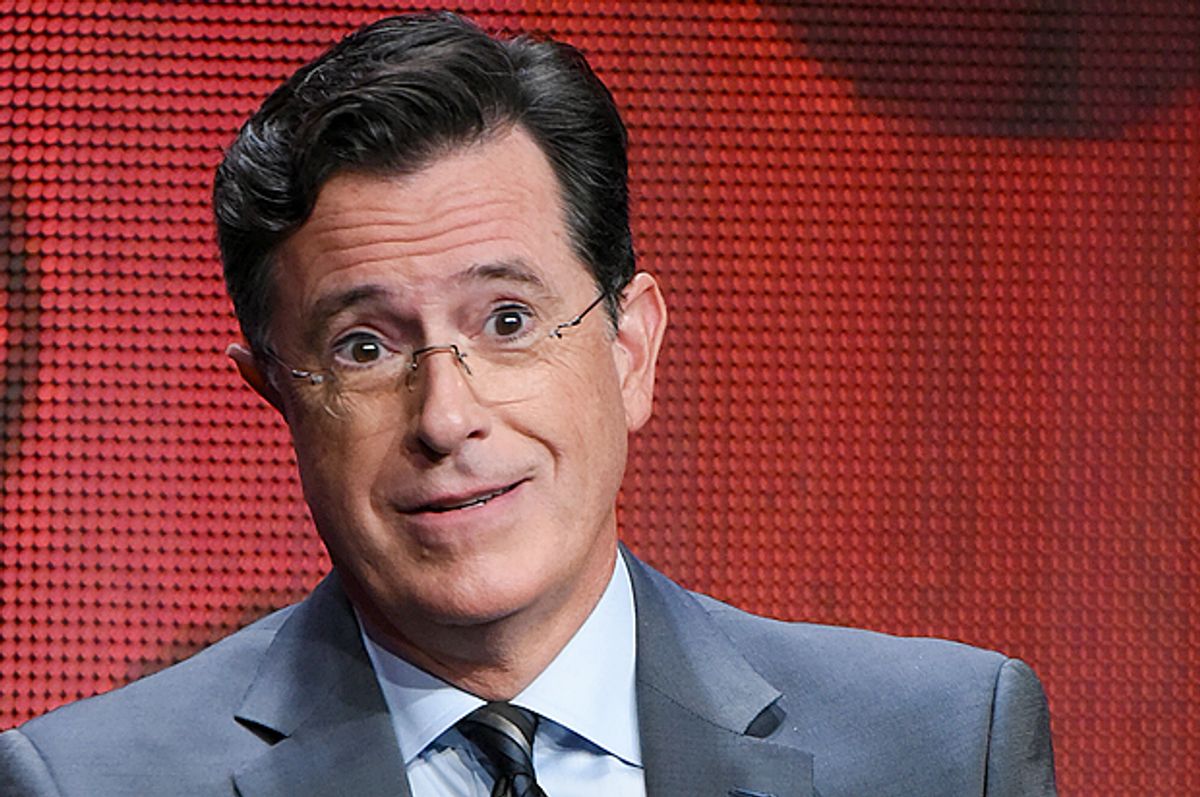Let's face it: Late night TV, at least on the big broadcast networks, is pretty lame these days.
Jimmy Fallon is fun but almost aggressively vacuous. Jimmy Kimmel is unpleasant. And I won't even pretend like James Corden and Seth Meyers have interested me terribly, despite their talents.
Into this wasteland comes Stephen Colbert. The first episode of his incarnation of "The Late Show" airs tonight. On the one hand, it is right to be dismayed at the incredible white-maleness of late night. The unbelievable lack of diversity on our airwaves is appalling. Even so, I can't help looking forward to seeing what Colbert will do with his show.
I am very excited.
Lots of people wondered whether Colbert could be successful without his Comedy Central persona, as if the fact that he sustained that persona so effortlessly for so long wasn't enough of a testament to his talents. Colbert and Jon Stewart have always been joined at the hip, culturally speaking, but really they're in different leagues. It used to be that Stewart was the one talked about as a successor to Letterman, but I actually don't think it would have worked out that well.
Colbert is another matter. As a performer and a sheer entertainer, Stewart is no match for Colbert. Then again, not many people are. He is dazzlingly good at what he does. He enters the late night fray more than able to match Fallon's stage chops.
Crucially, though, Colbert knows how to do something Fallon has clearly relegated to the lower tier of his show: talk to people. That's the other reason I'm excited. It's fashionable these days to mourn the supposed lost golden age of late night talk, when intellectuals sparred with each other and corruscating wit was the order of the day, so I won't. There's a lot of overblown mythology in that narrative anyway. I'll just say this: The "talk" part of the talk show has been somewhat devalued of late, and it will be good to have someone who can do both halves of the job description. If you've ever watched Colbert, you know that he is a formidable interviewer. He is lightning-quick on his feet. He is curious. He listens. He can be ruthless when he needs to be.
Of course, there are pitfalls involved in making the move into broadcast television. Colbert will inevitably have to soften some of his edges. He signaled to GQ that it's important to him that Republicans feel comfortable watching his show. To that end, I'm not looking forward to seeing him bantering with Jeb Bush tonight. (Then again, I was never exactly thrilled when he hung out with loveable war criminal Henry Kissinger on Comedy Central either.)
Even so, the thing that made "The Colbert Report" so great wasn't just the politics. It was also the wild alternate universe that Colbert painstakingly created over nine years. Remember when he won a Hungarian bridge-naming contest? Remember when he had an eagle as a kid? Remember when he did an all-singing, all-dancing Christmas special for no reason other than that he could?
His initial guest list—with Broadway stars and Ban Ki-Moon nestled next to Bernie Sanders and George Clooney—suggests that he won't be abandoning all of the elements of his old show. More importantly, it suggests that he thinks there's an audience for something better than what we're being given at the moment. Fallon has left a very large piece of turf for Colbert to occupy, and that's good. People will have a clear choice about what kind of show they want to tune into. It's probably obvious where my sympathies lie.
Let the Colbert era begin.


Shares